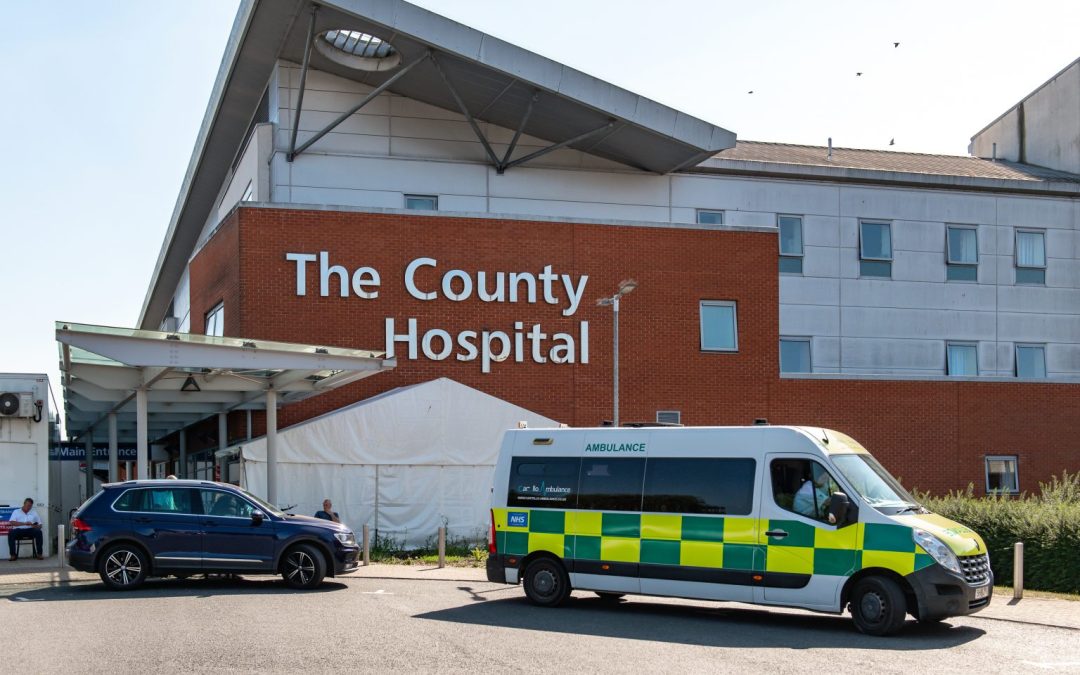Hereford County Hospital could soon have additional beds, as part of a proposed addition to a development at the site.
An update to a planning application has been submitted to Herefordshire Council, detailing the following:
“The proposal is an extension to the existing 2 storey development (covered under Herefordshire Council application reference P183689) and consists of an additional 24 bed ward floor with the overall development consisting of 3 no. storeys of ward accommodation and roof top plant enclosure.”
The planning application also includes a covering letter that supports the plans.
Hereford County Hospital serves both Herefordshire and parts of Mid Wales and currently has around 236 beds for patients.
The Care Quality Commission carried out an inspection of Hereford County Hospital in October 2022 and detailed the following findings:
“We carried out this unannounced focused inspection within the surgical and medicine core services.
“We checked the quality of services in response to a warning notice we issued following our inspection of the services in December 2019.
“In the warning notice, we set out areas where improvement was needed including infection control, risk assessments, mandatory training, culture and governance. This focused inspection was to see if improvements had been made within these services.
“During this inspection we inspected the surgical and medical core services using our focused inspection methodology.
“We did not cover all key lines of enquiry; however, we have re-rated some key questions based on the findings from our inspection.
“Overall, we rated safe and well-led as requires improvement in the surgical services. We did not rate the effective, caring or responsive domains.
“This means we rated surgery as requires improvement overall. Overall, we rated safe and effective as requires improvement in the medical services. We did not rate the caring, responsive or well led domains. This means we rated medicine as requires improvement overall.
“Our rating of The County Hospital stayed the same.
“We rated them as requires improvement because:
We found that risk assessments for venous thromboembolism and falls were not completed and updated in a timely manner.
Theatre briefs were not always completed thoroughly and efficiently which meant that patient data could be missed.
We found that patient notes were not locked away therefore, patient’s data was not protected.
Mandatory training levels for the staff did not meet trust target.
We found that World Health Organisation (WHO) checklist monitoring was not robust and there was confusion over its validity.
Staff were stressed and concerned about the newly implemented reverse boarding and the impact it was having on the service.
We found that missed doses of medicine were occurring on the medication charts and this was not audited. This meant that the service did not have an understanding of the impact of these missed doses.
Staff could not easily access basic life support training. This meant that training levels were low in most areas.
In medicine, Mental Capacity Act assessments were not routinely completed for patients who required them.
Deprivation of Liberty Safeguards were not effectively completed or reviewed in a consistent manner across medicine.
However:
The service had enough staff to keep patients safe.
Staff had training and understood how to protect patients from abuse, and managed safety well.
The hospital generally controlled infection risk well.
The service managed safety incidents well and learned lessons from them.
Staff felt respected, supported and valued. They were focused on the needs of patients receiving care. Staff were clear about their roles and accountabilities.
Staff used a nationally recognised tool to identify deteriorating patients and escalated them appropriately.
How we carried out the inspection
“We inspected this service on 12 October 2022.
“This was an unannounced focused inspection looking at the surgical and medical service.
“We inspected 5 surgical and orthopaedic wards, the operating theatres and pre-operative assessment unit. We inspected 6 medical wards.
“The team that inspected the service comprised 4 CQC inspectors, including a pharmacy specialist and a specialist advisor with expertise in surgical services.
“During our inspection we spoke with 40 staff members including nursing staff, healthcare assistants, allied healthcare professionals, theatre practitioners, doctors and managers. We reviewed patient records.
“You can find further information about how we carry out our inspections on our website: https://www.cqc.org.uk/what-we-do/how-we-do-our-job/what-we-do-inspection.”




